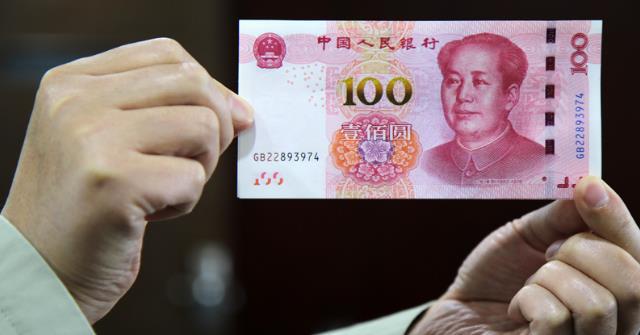
Foreign holdings in Chinese yuan-denominated bonds continue to refresh the high record. According to latest statics from China Central Depository & Clearing Co., Ltd. (CCDC), as of late August, overseas institutions deposited 1,412.084 billion yuan of bonds in CCDC, up by 58.007 billion yuan from the end of last month and by 44.96 percent from early this year.
This is the 18th month that foreign capitals increased holdings in yuan-denominated bonds. Analysts said that Chinese yuan has depreciated by nearly 5 percent from early this year, providing a good buying chance for new investors. Foreign institutions continue to be bullish on RMB’s future trend and current bond yield and still prefer to increase investment in it.
Investment environment will be more convenient for foreign capitals to invest in domestic bonds as lately a slew of policies about opening up China’s bond market have been specified and improved.
Domestic bonds become more attractive
Before the tax exemption policy is rolled out, the regulations on taxation and particularly value-added tax (VAT) of overseas institutions investing in Chinese bonds are not quite clear. But revenue department didn’t officially collect tax in practice. These are troublesome for foreign institutions to make investment decisions and risk control.
“Some foreign institutions don’t worry about regulations about risk control and internal control and almost buy national bonds, which are exempt from tax with risk of law violation,” Chen Ruihui, formerly responsible for Chinese business of a foreign-funded bank.
Now the tax policy has been specified, which alleviated the previous uncertainty and foreign capitals’ concern over potential investment return on yuan-denominated bonds. For instance, although absolute yield of bonds issued by China Development Bank is higher than that of national bonds, there’s no big difference between earnings of them if tax included. With tax exemption, bonds issued by policy-oriented banks will see prominent advantage under similar credit risk, and are expected to attract more investments due to its activity, said Liu Linan, strategy analyst at Deutsche Bank.
According to previous regulations, oversees institutions are exempt from VAT and income tax if buying China’s national bonds and local government bonds. But they have to pay 10 percent corporate income tax and 6 percent VAT if investing in other bonds. However, the details are still not clear yet.
Tax exemptions mean that bonds other than interest rate bonds have more obvious advantages. "This has increased the attractiveness of China's credit bonds and encouraged overseas funds to invest from other types of bonds rather than interest rate bonds. In fact, on a global scale, China's bond yields are still relatively high." Chen Fenrui said that meanwhile the inflow of foreign capital has a positive effect on the stable exchange rate and foreign exchange reserves.
China’s bond market accelerates opening
At the bond connect annual meeting two months ago, Pan Gongsheng, the deputy governor of the People's Bank of China, noted that a series of policy plans have taken effect, and the pace of opening up the bond market is faster than expected.
On August 24, the Bond Connect achieved DvP settlement function. On August 30, the bond interest income obtained by overseas institutions in the domestic bond market was temporarily exempted from corporate income tax and value-added tax within three years. On August 31, the bond connect officially launched the function of splitting positions before the bulk bond trading.
A series of supporting measures have brought relevant operations closer to the international level, providing a more convenient investment environment for foreign investors to allocate Chinese bonds. "A clear tax policy will help China's bonds to join the new global mainstream bond global composite index, thereby promoting the further opening of China's bond market." Liu Linan believes.
The three major international bond index suppliers are gradually increasing the pace of including Chinese bonds. Bloomberg has announced that the Chinese bond market will be included in the Bloomberg Barclays Global Composite Index in April 2019.
It is learnt that FTSE Russell's FTSE Index is currently preparing for the assessment of China's bond market to include the World Treasury Index (WGBI), which has the largest amount of funds to track.
Pan Gongsheng said that in the next step, the People's Bank of China will unswervingly continue to promote the comprehensive deepening of reforms and expand the strategic deployment of opening up to the outside world. It will work with relevant departments to further improve institutional rules and infrastructure arrangements, and support overseas rating agencies to enter the market to carry out rating business, encourage domestic infrastructure to strengthen cooperation with more international mainstream electronic trading platforms and related infrastructure to provide a more friendly and convenient investment environment for overseas institutional investors to invest in the Chinese bond market.
Translated by Vanessa Chan & Coral Zhong


















Latest comments